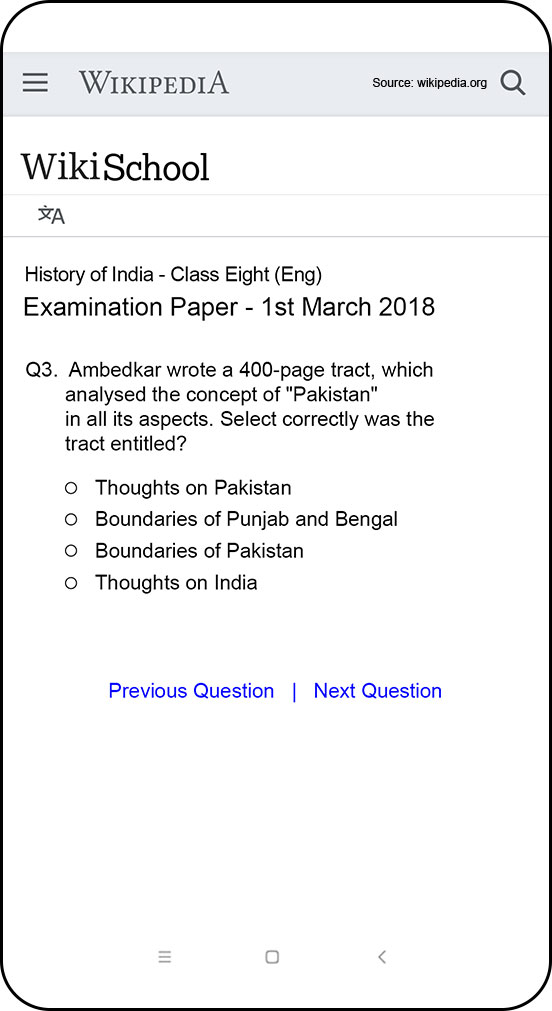April 2018
WikiSchool - New Age Education
The future world power, India, is applauded for its high-spirited democracy, young population, evolving digitisation, support of tech advancements & entrepreneurship. Then why be derided for the lost potential in education?
This conversation is sparked by the much talked about New Age Education, where videos are replacing lectures, online learning apps are raging and home schooling or distant learning programs find place in most resumes. So what's stopping basic education to be moved online for everyone?
WikiSchool, stands at the core of this. Online education at the touch of a button, curated by scholarly instructors/professors in areas of expertise, dynamically updated & verified through ML and AI, thus making learning intuitive with algorithms and introducing secured anytime, anywhere, exams!
We’re just beginning to see what’s possible.
1. Consider the topic 'History Of India' for 8th grade students.
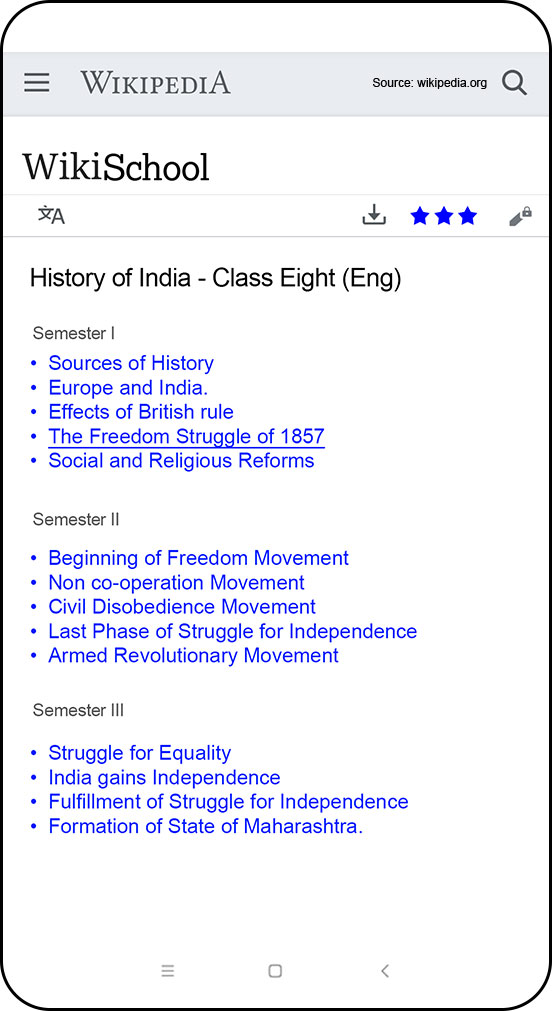
2. Scholarly Curriculum Curators
The curriculum and content will be curated by Ph.D professors or scholars, honoured for their expertise, on-ground research & thesis. Historians, archeologists, anthropologists, artists, travel enthusiasts, paleontologists collectively will add their knowledge, research and expert views, with ML & AI there to assist in curriculum updation and verification.
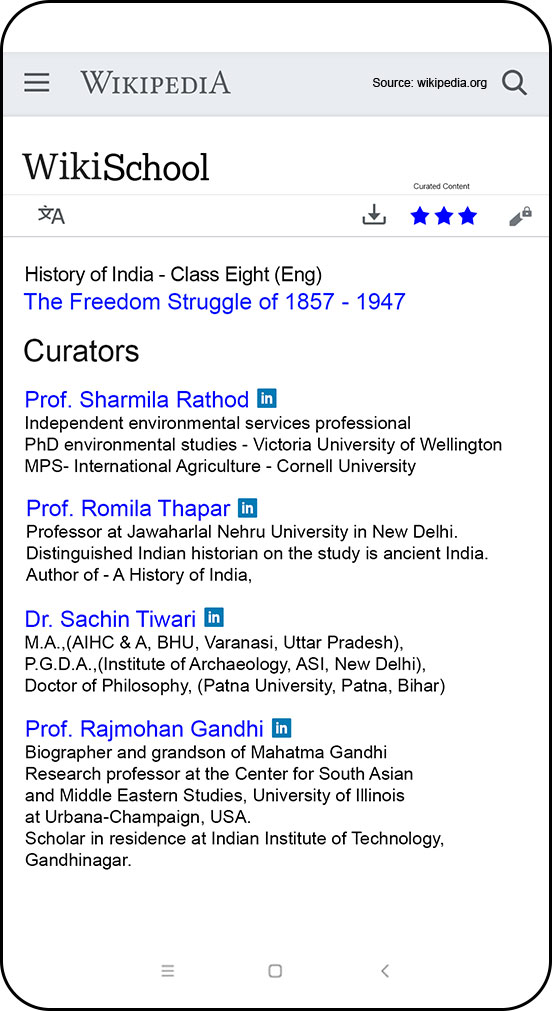
3. Ever-Changing Syllabus
75% of our population will be online by 2025. Putting our strengths together towards this possible improvement of literacy, WikiSchools will support and shape the build-up of online education.
Imagine a dynamic syllabus and vast repository of knowledge with auto-updated text/audio/video content, thus minimising weight on the shoulders and maximising brain power.
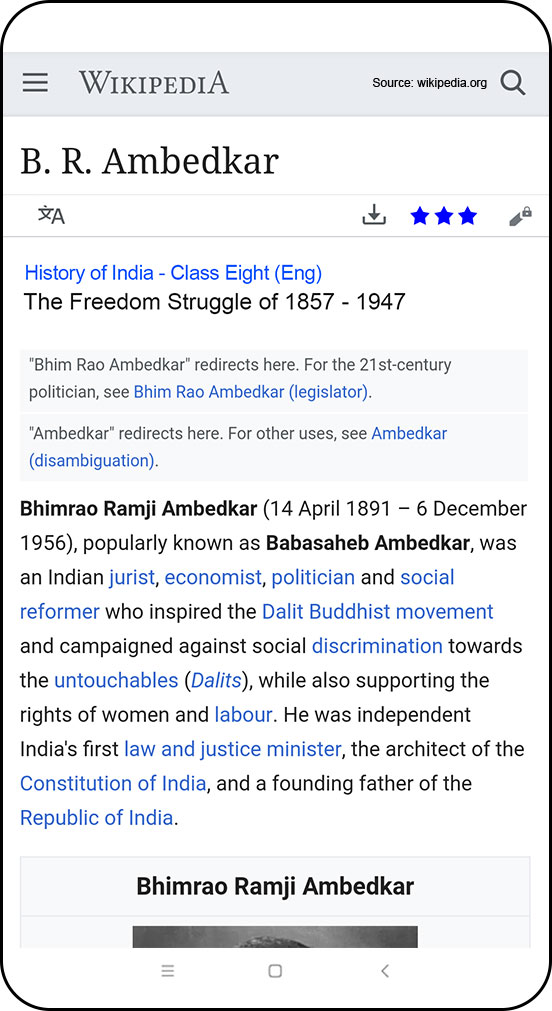
4. Authentication and Fraud Elimination.
Zero chances to cheat, fingerprint recognition, will further strengthen the authentication and identification process for online exams. Include other biometric modalities like face, and voice too. Not to forget the rise of 'gait recognition' in the near future.
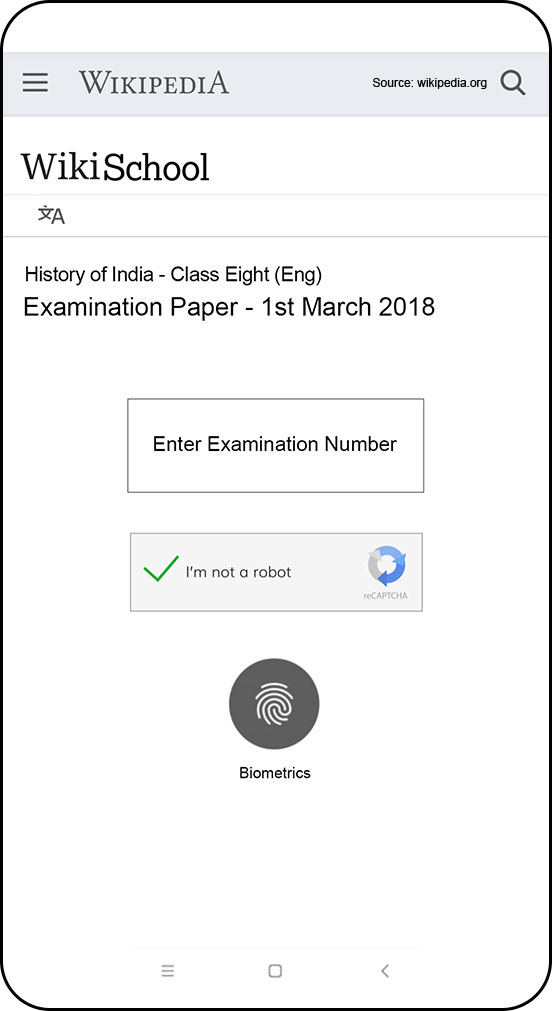
5. Keyword and ML Based Examination
Online exams will be more fluid in nature. Input objectives—and a transparent algorithm does the rest, collates questions from the entire topic and serves different questions to individual students taking the test. No two students will be served the same question.
These online exams will be evaluated on keywords. Highest score being 50 points. Each correct keyword will get you 10 points. Points will be added to the scoring dashboard immediately after the student moves onto the next question. Add-on features like sourcing of relevant images to support the answer will be trending.
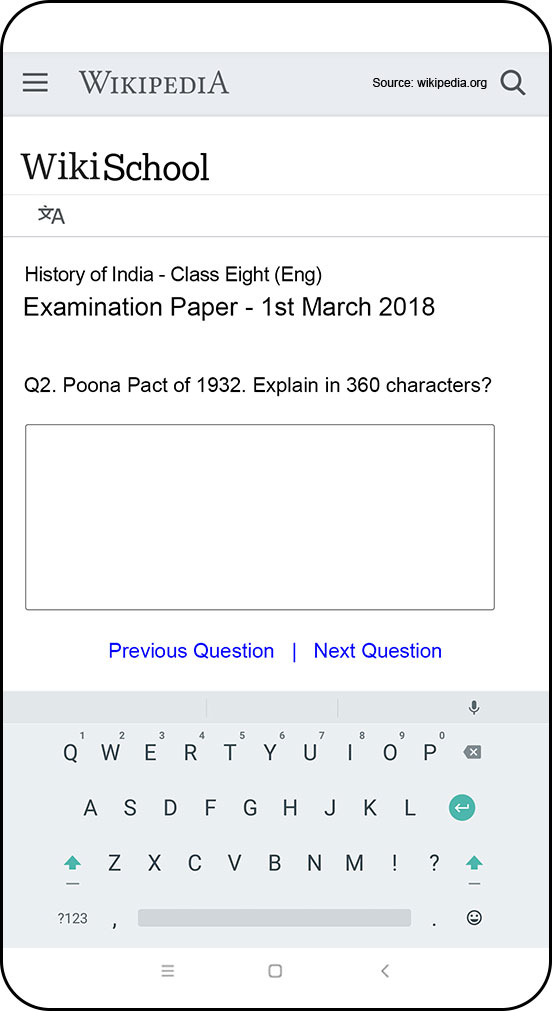
6. Reattempting The Question
This distinctive feature, will allow an algorithm to throw up simpler questions or a simpler format to answer the particular question, like in the example below.
Reattempting the question will add or deduct the student's total score depending on the answered keyword. Keywords to the original and simplified question will be available to student and teacher for evaluation.
